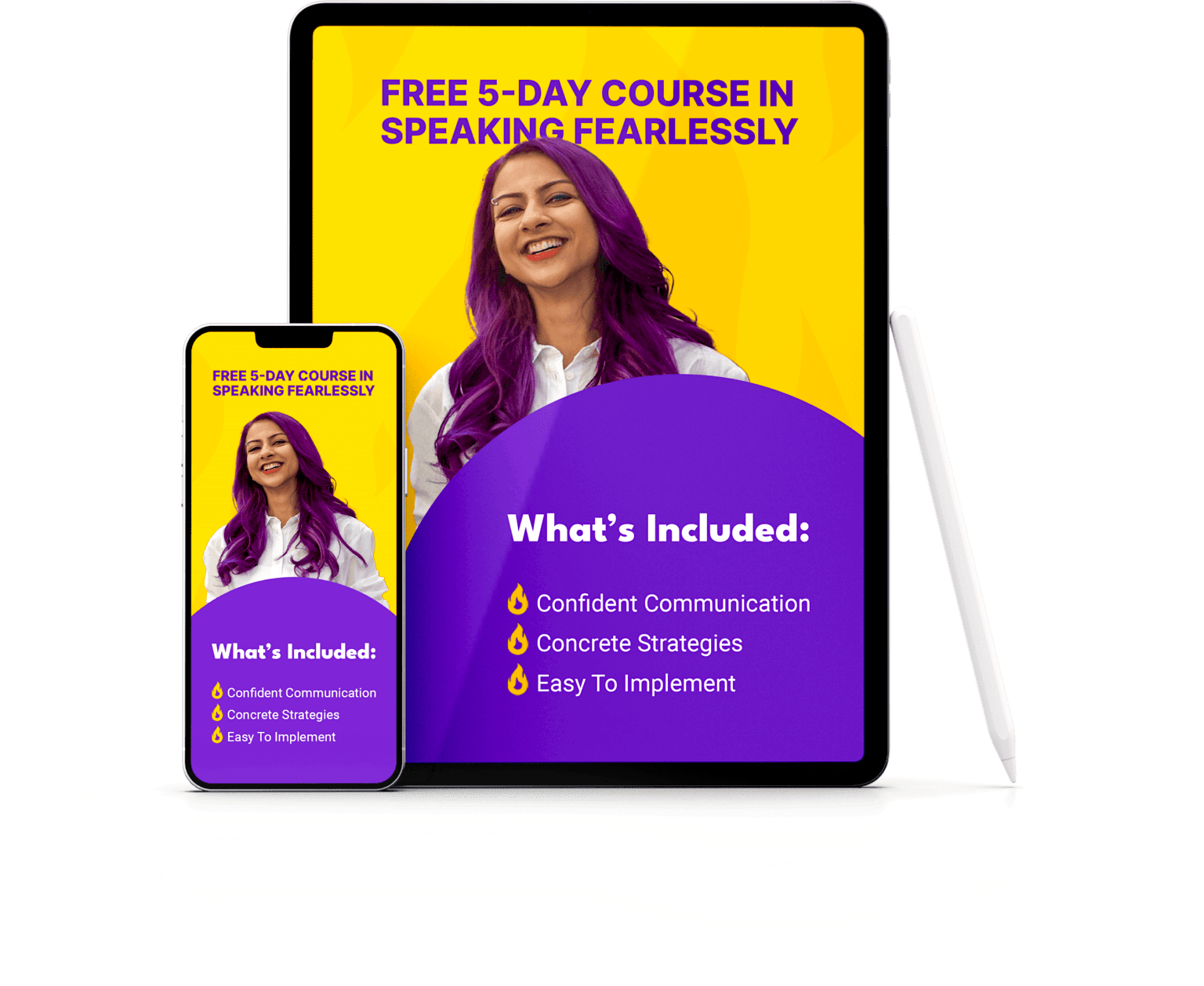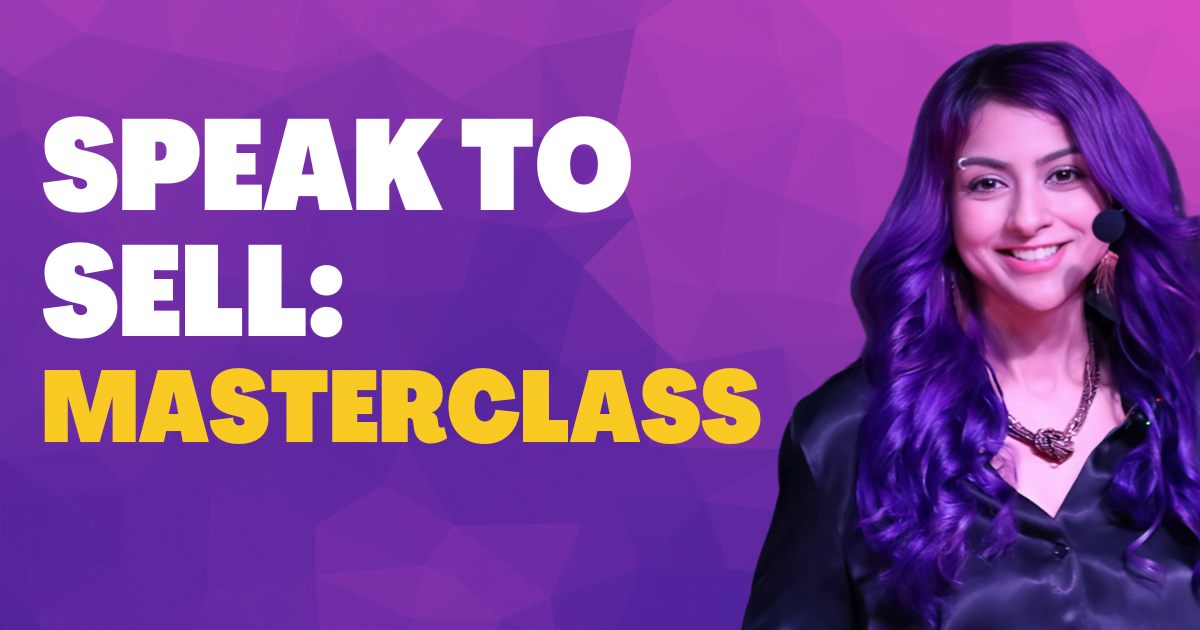If you’re like me, you’re probably sitting through dozens of “average” speakers delivering average presentations, podcasts and meetings every single week.
The speakers aren’t terrible but neither are they note-worthy.
Very often, you just want them to get it over with.
Now ask yourself: what if your audience thinks the same way about you the next time you present, do a sales call or guest on a podcast?
I’ve analyzed hundreds of “average” presenters and speakers [no seriously, I analyze and give feedback on 8-15 presentations every week].
They all have these 5 beliefs that stop them from becoming memorable and leaving a lasting impact. I’ll show you how to challenge and target each belief to transform your speaking skills from average → elite.
(PS – before we dive in – Some of you may not know this, but I run an accelerator program to get you from average to amazing when you speak. Next batch – March).
1. Average speakers only “educate”.
I see my clients get into “educate” mode when they start to present.
Their main goal: imparting information.
But here’s why that makes you lose out: the audience can’t grasp and retain that much information when it’s presented to them in a matter-of-fact, “you gonna learn today” way.
After receiving a few minutes of information, they will zone out.
What to do instead:
- Showcase your ideas in new ways:
- Use relevant stories to entertain.
- Integrate questions to engage.
- Use memes to add humor.
- Add drama and mystery.
2. Average speakers don’t practice.
What practicing is not:
❌ Reading the slides 2 minutes before you present.
❌ Reading your notes out loud.
❌ Speaking into the mirror.
What to do instead:
- Record all your practice sessions.
- Get feedback from peers, clients, team (or a coach!)
- Use this data to find your strengths and opportunities.
3. Average speakers don’t use their voice well.
When you speak in a monotone, your audience looks like this:
What to do instead:
- Vary your pace: faster for excitement, slower for emphasis.
- Learn to use your pitch to create drama, mystery, hype.
- Change intonations when moving on to the next thing.
- Use pauses to get the audience to reflect and react.
- Enunciate clearly so you’re not mumbling.
4. Average speakers get complacent.
Most average presenters are there to “get the job done”.
They see average presentations and create average presentations.
They don’t realize average presentations get forgotten, but amazing ones get action.
What to do instead:
- Watch one presentation by a top 1% speaker every week.
- Document how presenters use their voice and body language.
- Aim to replicate one result in every podcast, presentation, meeting.
5. Average speakers don’t know they’re average.
Probably the worst belief of all: “I’m fine when I present”.
Not knowing your own skill set inside out means you’re leaving the results of your next pitch, sales call or webinar up to chance.
What to do instead:
- Record your next webinar.
- Get access to your last podcast video.
- Share it with a select group of friends, peers, mentors.
- Choose people who won’t just say “you’re fine” to be polite.
- Ask for feedback on your clarity, voice, energy, body language.
Once you’re aware of what you’re doing well and what you can improve on – you’ve already started upgrading your skills. You’re on your way to becoming the best presenter you can be.
Hope this was helpful on a rainy Sunday. I’m rooting for you to leave the audience impressed, touched and energized when you speak next.
Till we meet again,
Speak fearlessly.
💜 Nausheen

